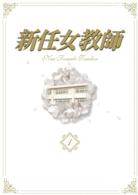Full Description
This book offers a psychohistorical analysis of the rapid growth of the Korean Protestant Church. KwangYu Lee looks at some of the traumatic historical events of Korea in the 20th century, including the fall of the Joseon Dynasty (1392-1910), the Japanese Occupation (1910-1945), the Korean War (1950-1953), and the Korean Military Dictatorship (1961-1987), and explores the psychological impacts of these events on the collective unconsciousness of Koreans. He argues that Koreans' collective (or cultural) complex of inferiority, which was caused and gradually exacerbated by these traumatic events, along with their psychological relationships with their two colonizers—the Japanese and Americans—prompted them to convert to Korean Protestantism en masse as a means to avoid their psychological pains and to fulfil their futile desire to become like Americans, their overtly idealized psychological-object.
Contents
1. Introduction: The Korean Protestant Church at Present and the Necessity of a Psychohistorical Approach to Its History.- 2. : A Historical Sketch of the Growth of the Korean Protestant Church in the Twentieth Century.- 3. : A Jungian Psychohistorical Theory: An Interpretive Tool.- 4. The Traumatic Twentieth Century of Korea: Japanese Imperialism, the Korean War and the Korean Military Governments.- 5. The Growth of the Korean Protestant Church from a Jungian Psychohistorical Perspective: Trauma, Cultural Complex, the Theology of Prosperity/Bliss and the Governmental Support.- 6. Conclusion: The Korean Protestant Church with the Cultural Complex of Inferiority.






